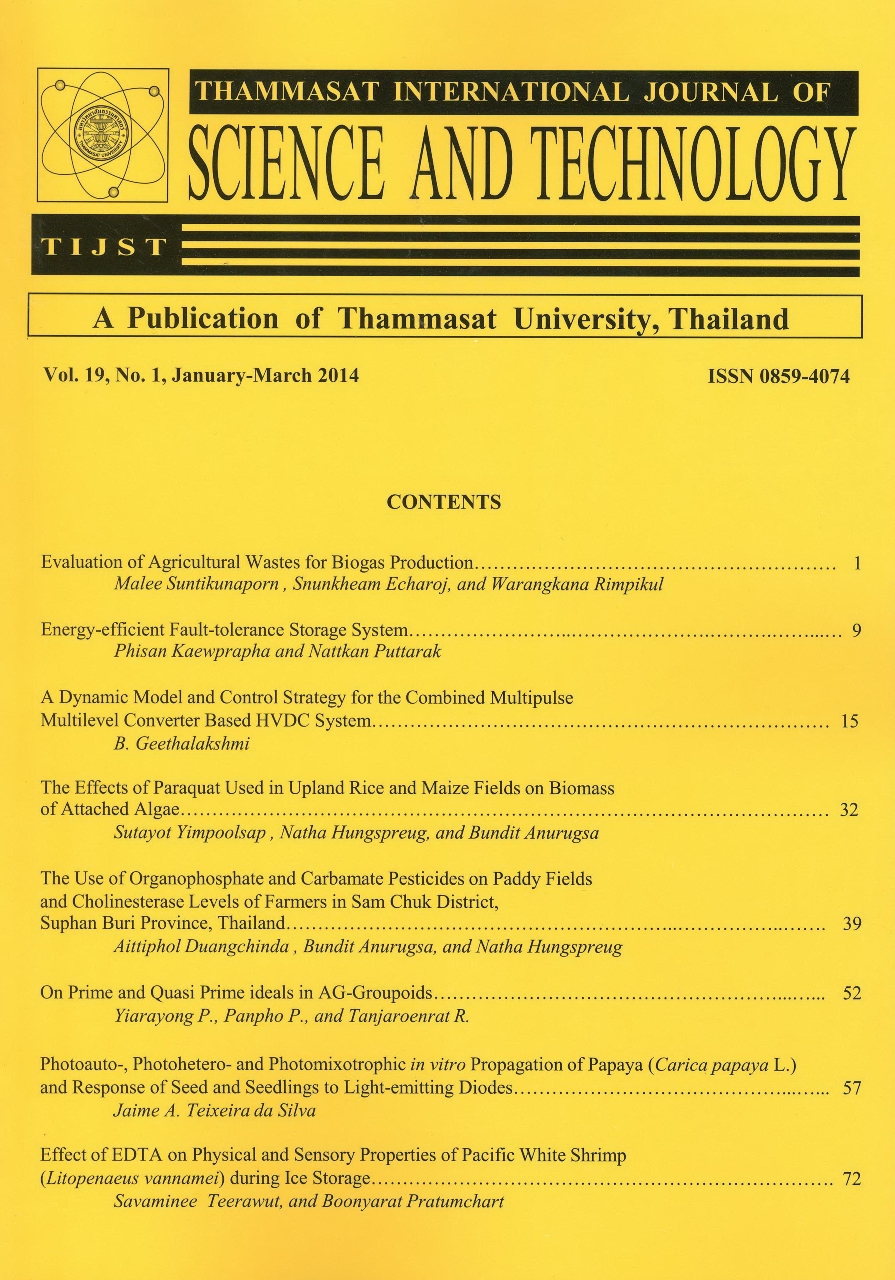Effects of Thermophilic Heat Pretreatment of Mixed Inoculum on Biohydrogen Production from Synthetic and Sugarcane Mill Wastewaters
Main Article Content
Abstract
Various pretreatment methods have been conducted on the mixed inoculums to enrich hydrogen producing bacteria (HPB). This study investigates the use of heat as a pretreatment method for the anaerobic sludge at 105oC, ranging from 45, 60, 90, and 120 minutes to determine the optimum time to suppress methanogenic activity and enhance hydrogen production using artificial wastewater in batch experiments. Experiments are also conducted with sugarcane mill wastewater with and without dilution and the results compared with synthetic wastewater. Optimum time of heating the seed inoculum obtained from the experiment with sucrose solution was applied to the sugar mill wastewater as substrate. Results of batch experiments showed that heat treatment at 105oC of the seed sludge, regardless of time duration of heating, showed no activity for methanogenic bacteria when using sucrose solution as substrate. There is an increasing trend of hydrogen production with an increase in heating time at 105oC regardless of sucrose loading (10 g/L and 20 g/L) with the highest value recorded at 120 minutes (3.24 mol H2/g COD on 10g/L and 4.26 mol H2/g COD on 20g/L). Results for sugarcane mill wastewater revealed an increasing trend of hydrogen production with the highest value of 2.38 mol H2/gCOD observed for 100% substrate loading (without dilution) and 1.75 mol H2/gCOD on 50% dilution, indicating a suitable source for clean energy production.
Keywords: Anaerobic Sludge; Heat Pretreatment; Hydrogen Production; Wastewater; Sucrose.


